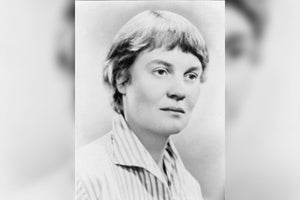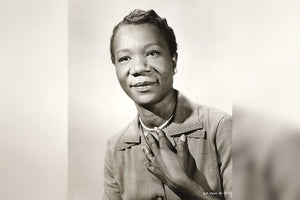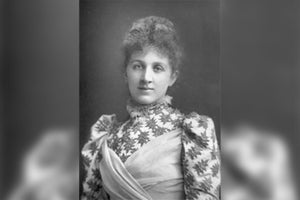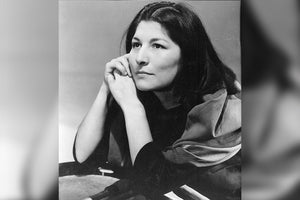Birthday: October 16, 1917
Who is Fannie Lou Hamer?
Fannie Lou Hamer is an American activist, voting rights advocate, and civil rights movement leader. She is a passionate icon and depiction of the suffering of fellow African-American people against the racist society.
In 1964, Hamer helped in organizing the movement for “Freedom Summer African American voter registration” in her hometown in Mississippi. Its goal is to grant African-American equal economic opportunities.
The following year, she joined the Mississippi Freedom Democratic Party, an organization of activists opposing Mississippi’s all-white delegation. It challenges the constitutionality of all-white participation in the political scene.
Five Facts about Fannie Lou Hamer
- She was the youngest among 20 children and started field-work when she was only six years old.
- Fannie Lou Hamer has a walking disability because of polio and has an eye blood clot after severely beaten by the police in Mississippi jail for being black.
- Being black, most of her life she worked as a sharecropper or cotton picking where she also met her husband. Cotton-picking is also a term coined by white people to describe black society.
- She was fired as a sharecropper when he tried to register to vote and spearhead voting drives as a co-founder of the Mississippi Freedom Society. This act also terrified President London Johnson.
- She underwent surgery to remove a serious uterine tumour. Such an incident failed her to conceive a baby because of the hysterectomy procedure by a doctor without her consent.
Fannie Lou Hamer Biography
Early Life
Born on October 16, 1917, in Montgomery County, Missipi, Hamer was the youngest child of 20 children of Ella and James Townsend. Her parents were sharecroppers in the Delta Area of Missipi. She also joined her parents as a sharecropper when she was only 6 years old.
Hamer loves to read books, reciting poetry, and excelled in spelling competitions. However, when she was 12, she dropped out of school to work full-time and sustain her family needs. She would pick 90 to 130 kgs of cotton despite being limp.
Being out-of-school youth did not stop her to improve her interpretation and reading skills. Famer continued and improved his reading habits during bible studies in her church. The Director of the Mississippi Freedom Society, Lawrence Guyot, was amazed that she was able to connect the biblical teachings with their struggle for civil rights.
In 1944, she was employed as a record and timekeeper after the plantation owner found out about his literacy. Later that year, she married his husband, Perry Hamer, a truck driver.
She and her husband wanted to start their own family but couldn’t do so because of the hysterectomy done without her consent by a white doctor following her tumour removal surgery. She adopted two girls instead but one died because of an internal haemorrhage and refusal of the hospital to admit her because of Hamer’s activism.
Career
Hamer is a civil rights activist. In 1962, she joined a protest meeting that would change her life forever. She met fellow civil rights activists encouraging African-American fellow to register and vote. She was persuaded to register and travelled to the county house to realize this goal.
Because of her activism, she encountered many hurdles from state and local law enforcers. She also got fired from her job for almost 2 decades. These incidents did not terrify her; instead, she became more passionate about fighting for African-American civil rights.
After leaving the plantation, she devoted her time to work in the Student Nonviolent Coordination Committee. It is an organization of African-American students who fight racial discrimination and segregation through civil disobedience.
Her activism career leads her to be beaten, arrested and threatened numerous times. She was put to jail after taken by the police while attending a workshop. Fannie was severely beaten leaving a blood clot on her left eye and kidney damage.
In 1964, she co-founded the Mississippi Freedom Democratic Society. The organization strongly opposed the all-white delegation in the Democratic Convention. She brought the civil rights struggles of black people in a televised session of the convention and it drew attention in all States of America.
She ran for Congress but did not win. However, she continued helping the poor and her Mississippi community. She established numerous organizations to provide livelihood opportunities for the poor and minorities. In 1971, she founded the National Women’s Political Caucus.
Legacy and Death
In 1976, Hamer has suffered breast cancer and died the following year. However, while being at the hospital, she continued to support and spearhead protests for her fight for civil rights. Hundreds of people paid respect to her tireless fight for civil and racial equality in Ruleville Church. In her tombstone, her famous words were written: “I am sick and tired of being sick and tired.
![]() Fast Shipping
Fast Shipping![]() Subscribe to our Newsletter
Subscribe to our Newsletter![]() 🌟 New Global Competition 🌟
🌟 New Global Competition 🌟















